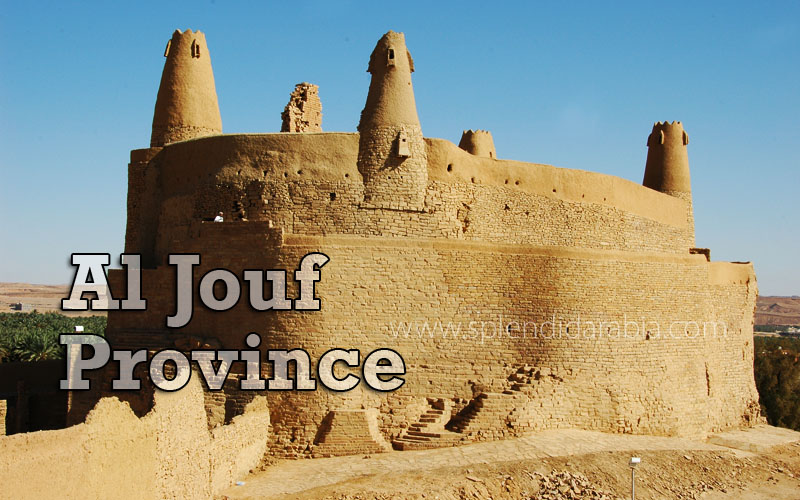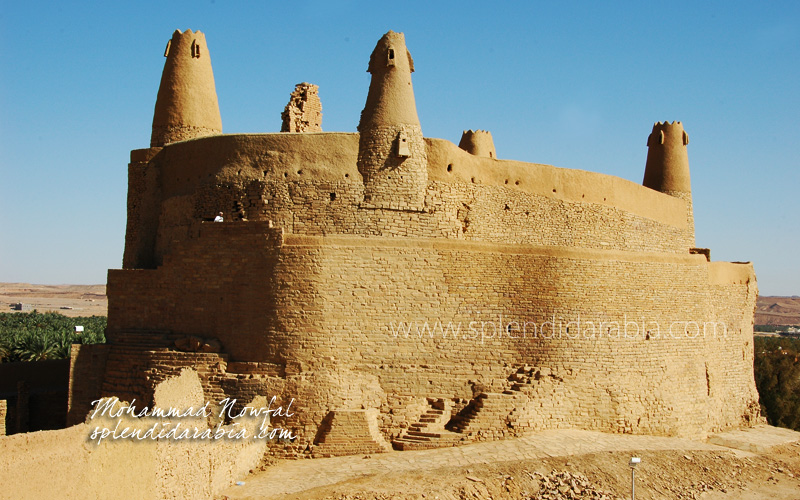Al Jouf Province forms a vital position in the North Arabian and Syrian Desert. Enclosed by sandstone hills, its oasis have played an important role in the contact between the Arabs in the Peninsula and the people of the Fertile Crescent. Dumat Al Jandal (or shortly called Duma) has been the most prominent oasis of Al Jouf in history.
Al Jouf was an extremely important center and a summer camping ground for the nomads in ancient history. It was a confluence of various cultures. A political and commercial center of the early Arab tribes who were engaged in trade through Arabia to Mesopotamia and Levant almost 3000 years ago.
Dumat Al-Jandal was an important caravan town and agricultural oasis. At the dawn of Islam, it was under the control of prince Ukaidir ibn Abdul Malik al-Sukuni of the tribe of Kinda. Several attempts were made by the Muslims to bring back the tribes to Islam. At last, Ukaidir was captured by Khalid bin al-Walid in the year 630 AD.
It is recorded that there are more than 13 million olive trees in the province in addition to new plantations. Al Jouf contributes some 5,000 tonnes of olive oil and 2,700 tonnes of table olive to the global olive market. An Olive Festival is celebrated annually in Sakakah with its first event held in 2007.
Sakaka, the capital city of the province, and Dumat Al Jandal are the major cities of Al Jouf Province.


